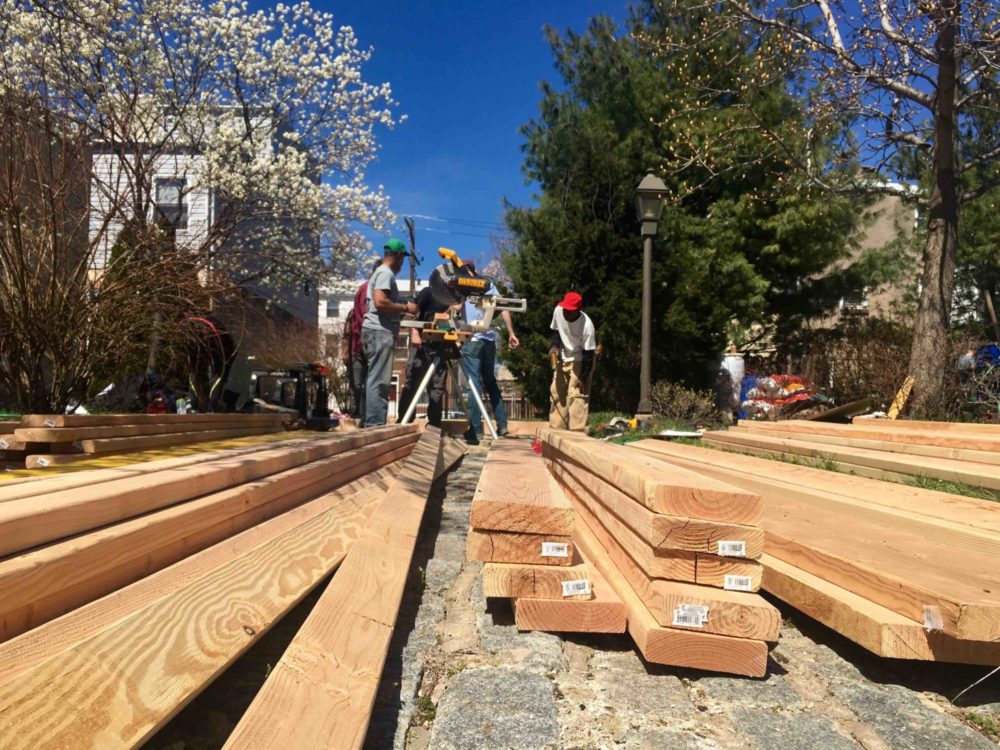If you take a walk down the 1700 block of Wylie Street in Francisville, you’ll notice two things: a gated senior community and an urban farm with some unfinished construction.
That area will be site of what might be the city’s first passive solar greenhouse, and Urbanstead, an urban farming nonprofit organization in Philadelphia, is in the beginning stages of creating it.
Unlike traditional solar greenhouses, passive ones don’t use artificial heat sources like propane. Instead, they rely on something simpler: water.
Using 55-gallon, black water barrels, the sun will heat the water and warm the greenhouse, therefore preventing damage to the plants inside. But it takes more than just a few barrels of water to bring this design to life. Builders are using wood along with plastic, polycarbonate panels to put the greenhouse together.
The passive greenhouse will help extend Urbanstead’s growing season. Director Lisa Gaidanowicz said this will be beneficial for the organization’s youth program, which introduces young people to the world of urban farming through a variety of events and initiatives. “One thing we’ve been missing is the ability to grow year-round to engage people,” she said. “Building this greenhouse is going to allow us to run our youth program all year.”
The greenhouse will make the biggest difference in the winter, allowing plants to grow in cold weather. Of course, an extended growing season also means more fresh produce available for local residents, including the senior citizens in the surrounding area.

Urbanstead was 1 of 27 organizations across the nation to receive a grant from the Whole Cities Foundation, a nonprofit created by Whole Foods. The $5,000 grant will cover the cost of construction. After announcing the project in November of 2016, Urbanstead hosted a community event on Sunday where they began the building process.
Philadelphia has no shortage of unheated greenhouses; however, Gaidanowicz said Urbanstead’s will stand out. “There are lot of high tunnels in Philly, but [as far as I know,] there’s nobody using water mass as a means to retain heat,” she said. “The main idea is to use mass instead of power.”
While it may be the first in the city, the design of the greenhouse was inspired by one already in place in Colorado.
The greenhouse is still a work in progress, but it will be ready for use by the upcoming winter. It’s being built by a team of Urbanstead volunteers, who believe community participation is one of the main benefits. Dori Buttz is one of those believers.
“On top of being an interesting educational tool, it’s [also] going to allow the farm to have involvement with the community throughout the seasons, which I think is great,” she said.







